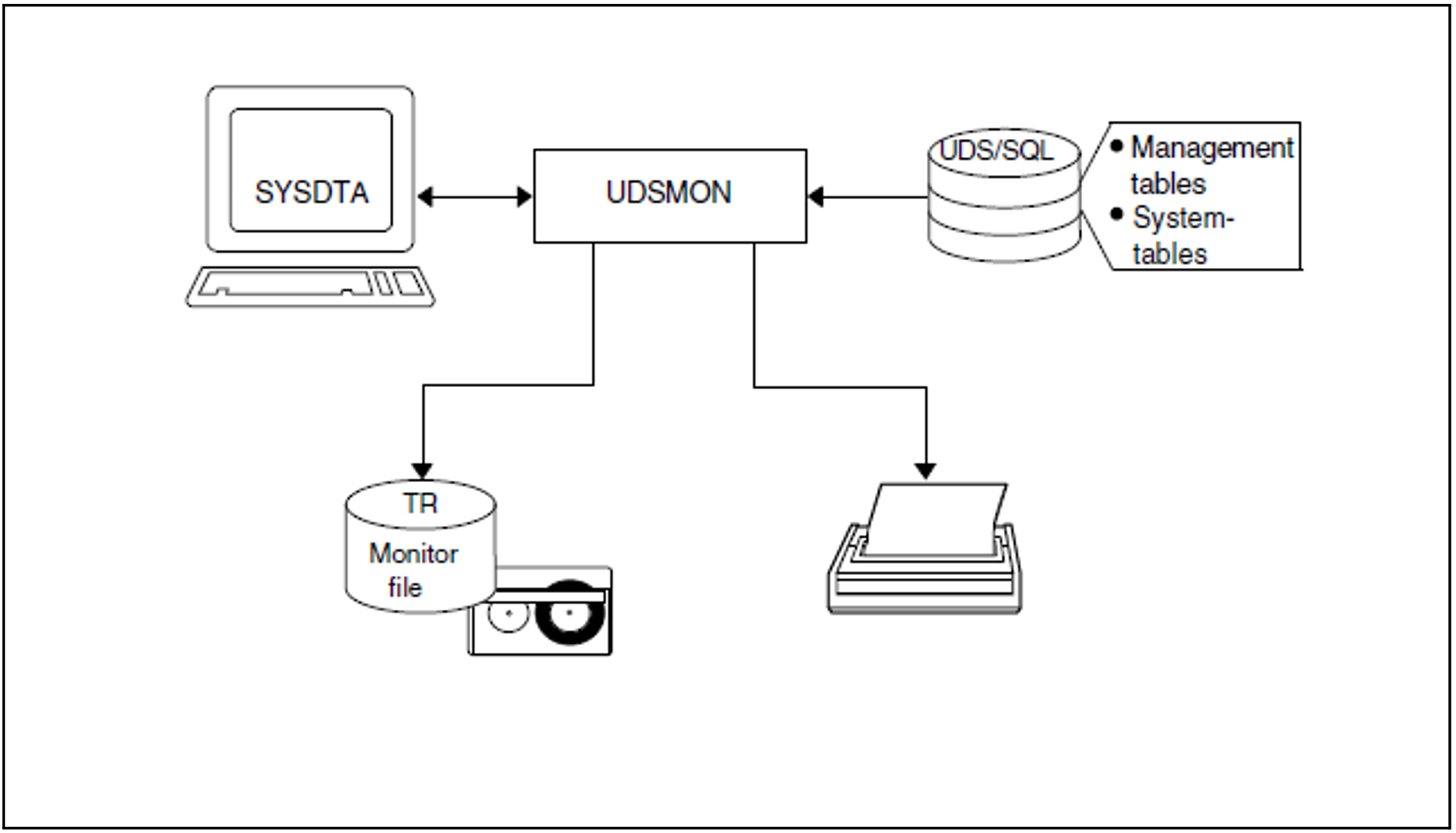Figure 11: System environment of UDSMON
UDSMON is an autonomous program independent of UDS/SQL.
Starting the UDS/SQL monitor
UDSMON is started by:
/START-UDS-MONITOR
The UDS/SQL monitor must be loaded under the same user ID as the master task and server task(s). For further information on starting UDS utility routines, see the manual "Creation and Restructuring".
UDSMON accesses the UDS/SQL management and system tables. It executes parallel to database operation and outputs values obtained to the data display terminal, to printer or to a file.
Before the monitor starts to collect data, statements must be issued to specify the output devices, masks and time intervals.
If the database administrator wishes to specify a new or different output medium during UDSMON operation, an interrupt can be initiated by means of EM DUE followed by the appropriate SEND-MSG command.
Restriction:
If the UDS/SQL monitor attaches itself to the common pool, the version is checked. If the versions of UDS/SQL and UDSMON do not match, the monitor terminates with an appropriate message.
Terminating the UDS/SQL monitor
You can terminate the UDS/SQL monitor at any time with the following command:
/INFORM-PROGRAM MSG='END'[,JOB-ID=*OWN]
Otherwise it is terminated automatically at the end of the UDS/SQL session or once the time specified in the RUNTIME statement has expired.
Monitor file allocation
The appropriate CREATE-FILE command must be specified if the monitor file is to be set up explicitly.
/CREATE-FILE FILE-NAME=monitor-file [,SUPPORT=*PUBLIC-DISK(SPACE=*RELATIVE(PRIMARY-ALLOCATION=primary,SECONDARY-ALLOCATION=secondary))
or
,SUPPORT=*PRIVATE-DISK(VOLUME=priv-vsn,DEVICE-TYPE=device[,SPACE=...])] /ADD-FILE-LINK LINK-NAME=TR,FILE-NAME=monitor-file,ACCESS-METHOD=*SAM
monitor-file | |
freely selectable name for the monitor file | |
TR | link name of the monitor file |
If no allocation is made, UDSMON automatically sets up the monitor file on public disk under the following name:
| |
TR | specified file name (TR = TRACE) |
tsn | allocated task sequence number (four-digit) |
date | current date in the form: yyyymmdd |
Any existing monitor file is updated.

